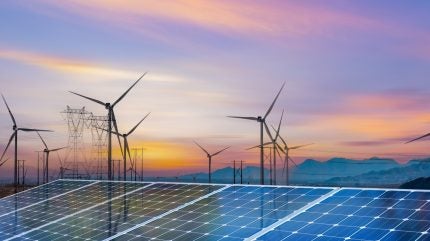
Japan’s industry ministry has unveiled a draft of a new basic energy plan which commits to maximising the use of renewable and nuclear energy to advance decarbonisation efforts.
The draft indicates a significant shift from the energy policy of the country since the 2011 Fukushima nuclear disaster, with a target for renewable energy to constitute 40 to 50% of Japan’s power generation mix by fiscal 2040, and nuclear energy 20%, as reported by Jiji Press via The Japan News.

Discover B2B Marketing That Performs
Combine business intelligence and editorial excellence to reach engaged professionals across 36 leading media platforms.
The ministry’s draft removes the previous language on reducing reliance on nuclear power, a stance held since 2014, and introduces a strategy to rejuvenate ageing reactors.
This plan is expected to gain cabinet approval in February 2025.
The move is part of a broader goal to bolster noncarbon energy supply capacity in response to expected power demand increases, driven by new data centres, semiconductor factories and the expansion of existing facilities.
Power generation is projected to rise to between 1.1 and 1.2 triple kilowatt-hours by fiscal 2040, up from the current 1 trillion kilowatt-hours. To accommodate this, the ministry plans to enhance the renewable energy share from the fiscal 2030 target of between 36% and 38% to around 40% to 50%, while reducing thermal and other energy sources to between 30% and 40% from 42%.

US Tariffs are shifting - will you react or anticipate?
Don’t let policy changes catch you off guard. Stay proactive with real-time data and expert analysis.
By GlobalDataAlthough nuclear energy’s contribution was only 8.5% in fiscal 2023, the draft outlines a sustainable approach to nuclear power, maintaining its 20% share.
The draft proposes allowing power companies to rebuild existing nuclear reactors on the sites of others they own, and includes the development of next-generation reactors.
It also highlights the adoption of innovative technologies such as lightweight perovskite solar cells.
Thermal power reliance, particularly from coal-fired plants, is expected to fall to between 30% and 40% by 2040 from 68.6% in 2023. The ministry also intends to promote hydrogen and ammonia as alternative fuels for thermal power to cut carbon dioxide emissions, as reported by Reuters.
The draft reflects a national strategic plan to achieve a well-balanced power generation mix, especially in light of heightened resource prices due to Russia’s invasion of Ukraine in 2022 and escalating Middle East tensions, ensuring that Japan is not overly reliant on any single energy source or fuel.





